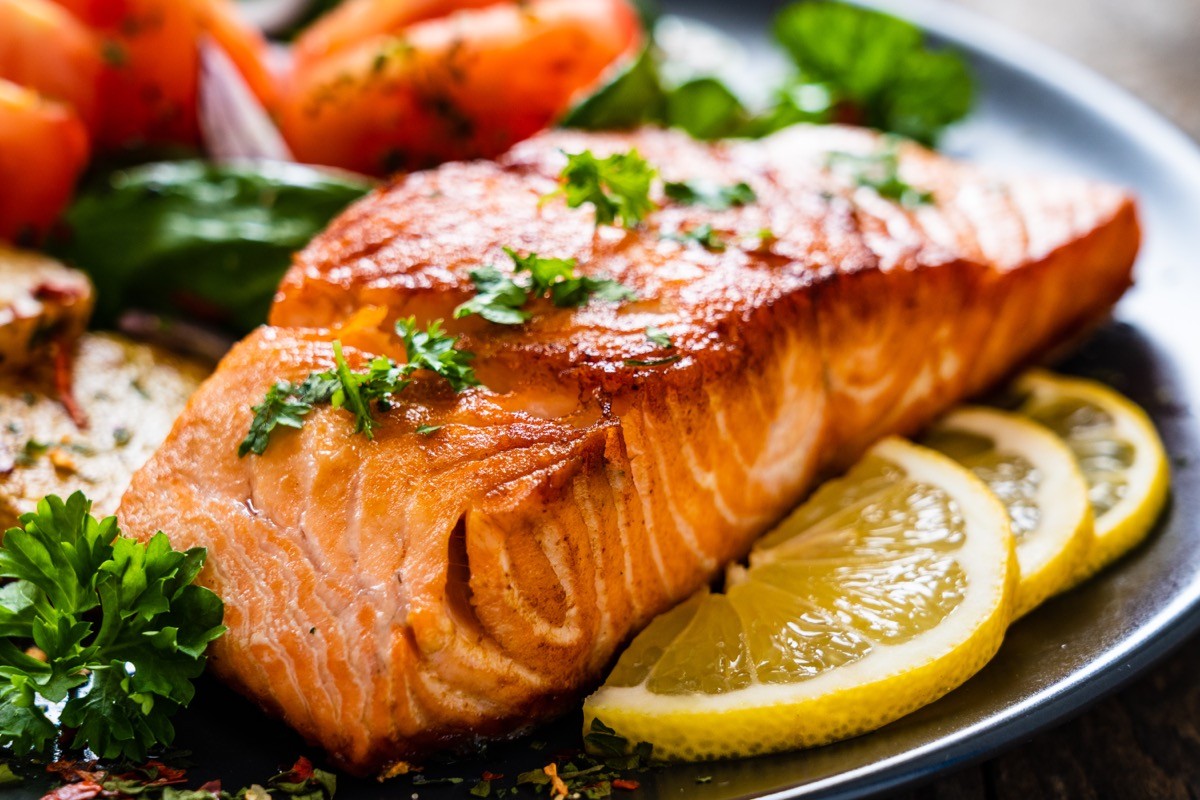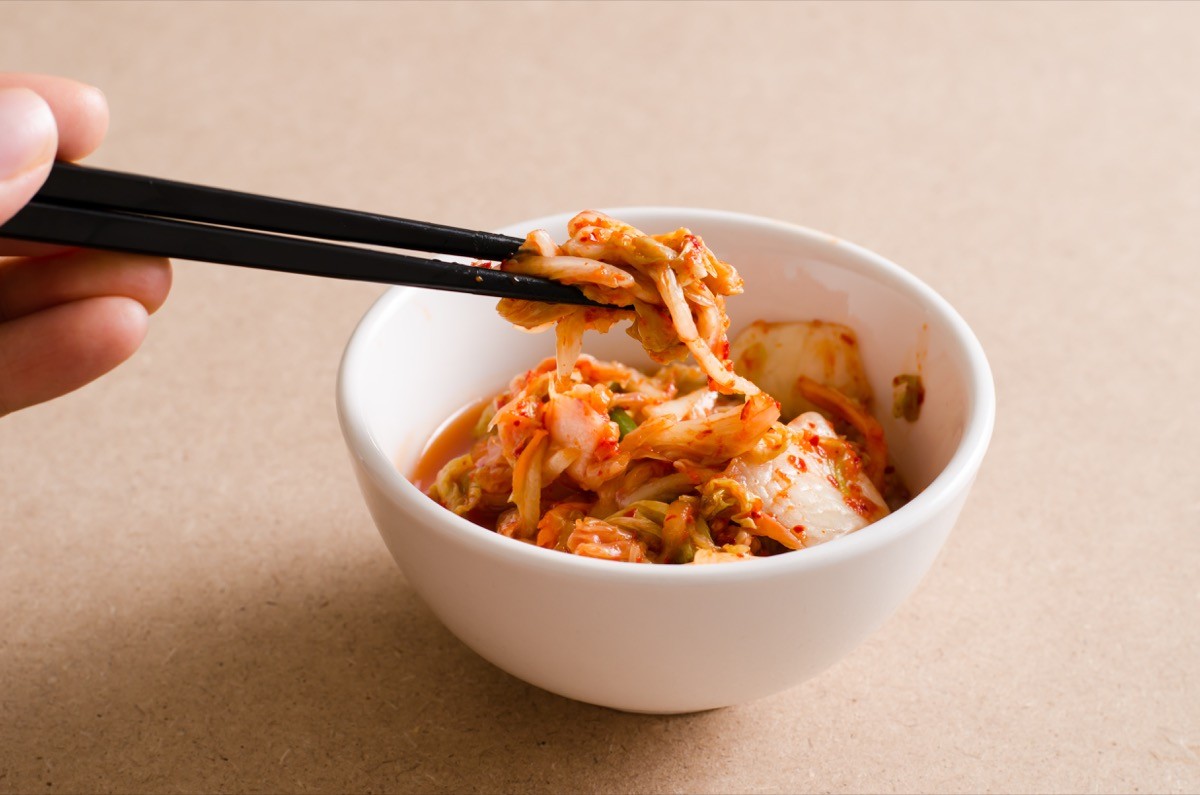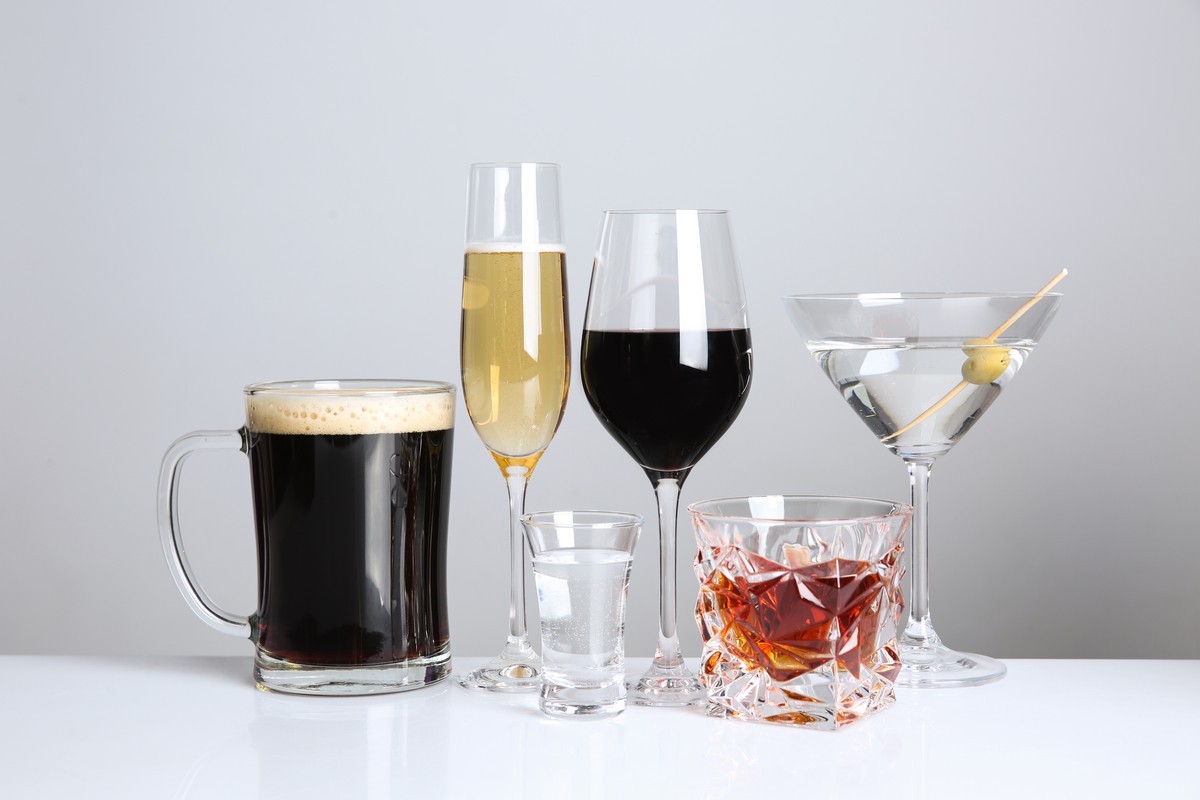The 6 Best and Worst Foods to Boost Your Flu Shot’s Effectiveness

There are plenty of ways to help prevent the spread of viral illnesses during cold and flu season—regularly washing your hands, covering your cough, and avoiding people who are sick, to name just a few. However, according to the Centers for Disease Control and Prevention (CDC), getting your flu shot this fall should be a central part of your plan to stay protected. “The single best way to reduce the risk of seasonal flu and its potentially serious complications is to get vaccinated each year,” the health authority writes.
However, it’s also important to take all necessary steps to boost the benefits of vaccination through lifestyle factors. In fact, The Washington Post recently reported that things like mood, exercise, and diet habits can all influence how effective your flu shot will be.
That’s why we checked in with Jennie Stanford, MD, FAAFP, DipABOM, a double board-certified physician specializing in family medicine and obesity medicine and a medical contributor for Drugwatch. She says diet can have an especially significant effect on how well your flu shot bolsters your immunity—and that there are a handful of foods to seek out and avoid in order to sway the results in your health’s favor. Read on to learn the five best and worst foods to boost your flu shot’s effectiveness.
RELATED: 7 Foods That Help Fight Off the Flu, Doctors Say.
1
Best: Foods rich in Omega-3 fatty acids

Eating fatty fish such as salmon and sardines can help fight inflammation because it’s rich in polyunsaturated fats (PUFAs), known as omega-3 fatty acids. As one 2010 study points out, “The anti-inflammatory effects of marine n-3 PUFAs [such as the omega-3s EPA, DHA, and DPA] suggest that they may be useful as therapeutic agents in disorders with an inflammatory component.”
Stanford says this makes fatty fish one of the best foods for boosting the effects of your flu shot. However, if you’re not a fan of seafood, chia seeds, olive oil, and avocados are also anti-inflammatory foods. She says these can help reduce the adverse effects of your flu shot and lower systemic inflammation, leading to better outcomes.
2
Worst: Ultra-processed and fast food items

If anti-inflammatory foods are ideal for boosting your immune response to the flu shot, pro-inflammatory foods have the opposite effect. Stanford says this category includes processed foods, which tend to be high in sodium and refined carbohydrates. You might find these in fast food restaurants or pre-packaged grocery store items such as chips, cookies, or frozen meals.
She notes that besides creating an inflammatory response, these “can make side effects worse after vaccinations.”
3
Best: Antioxidant-rich foods

Berries are an excellent addition to your diet any time of year, but Stanford says they may be especially beneficial during cold and flu season since their high antioxidant content can help boost immunity.
Other antioxidant-rich foods, such as leafy greens, turmeric, and green tea, can also help increase your flu shot’s effectiveness.
RELATED: I’m a Nutritionist and Here’s Exactly What I Do to Not Get Sick.
4
Worst: Sweet treats

Stanford explains that foods with many added sugars can also contribute to inflammation. This means that if your diet includes lots of sweet treats like ice cream, cake, and candy, your flu shot’s benefits could be undermined.
Instead, aim to satisfy your sweet tooth with natural sources of sugar, such as high-fiber fruits.
5
Best: Probiotic-rich foods

Studies suggest that having good gut health, or a well-balanced gut microbiome, can help your immune system stay in top condition. That’s why Stanford recommends adding probiotic yogurts and fermented foods to your diet.
In fact, experts from Stanford Medicine conducted a study in 2021 and found that when subjects ate a diet that was rich in fermented foods over the course of a 10-week period, they had more microbial diversity in their digestive tracts, and better immune response.
“Microbiota-targeted diets can change immune status, providing a promising avenue for decreasing inflammation in healthy adults,” said Christopher Gardner, PhD, the Rehnborg Farquhar Professor and director of nutrition studies at the Stanford Prevention Research Center, in an interview with Stanford Medicine. “This finding was consistent across all participants in the study who were assigned to the higher fermented food group”
6
Worst: Alcohol

It’s not uncommon to feel under the weather after getting your flu shot, and alcohol can worsen the vaccine’s side effects, including fatigue, nausea, and headache.
Though there is not enough data to support that drinking alcohol immediately before or after your flu shot would compromise the outcome of your flu shot, alcohol can have a broadly negative effect on your immune system if you drink frequently.
“The immune system is made up of two parts: The innate immune system: this provides general immunity by responding to viruses, bacteria and other microorganisms that can cause disease [and] the adaptive immune system [which impacts] your immune memory. This includes things like remembering what a previous infection looked like, such as chickenpox, and stopping it from happening a second time,” explains the Alcohol and Drug Foundation (ADF). “Drinking has a negative impact on both parts of the immune system.”